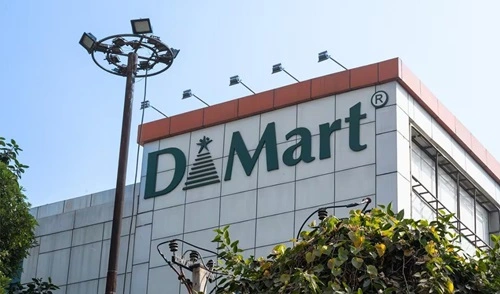In the retail industry in India, D-Mart, formally known as Avenue Supermarts Limited, is a well-known brand. Since its humble beginnings in 2002, it has grown quickly to rank among the nation’s biggest and most prosperous retail businesses.
About D’Mart
The grocery chain “DMart” is owned by “Avenue Supermarkets” and operates throughout India. The company was created in 2002 by none other than ‘Radhakishan Damani,’ a renowned value investor from India. The transition of Mr. Damani from a profitable value investor to the creator of DMart has served as an inspiration.
By FY23, DMart will have expanded from its initial two stores in Maharashtra to 330 locations throughout 14 states in India. Until 2016, “Avenue Supermarts,” the firm that owns DMart supermarkets, was a privately owned company.

D-Mart Company Details
| Aspect | Details |
| Name | D-Mart (Avenue Supermarts Ltd.) |
| Founded | 2002 |
| Founder | Radhakishan Damani |
| Headquarters | Mumbai, India |
| Industry | Retail (Supermarkets and Hypermarkets) |
| Format | Chain of hypermarkets and supermarkets |
| Number of Stores | Over 220 stores across India (as of my last knowledge update) |
| Revenue | Multi-billion-dollar revenue |
| Business Model | Discount retail with a focus on value pricing and efficiency |
| Website | https://www.dmartindia.com/ |
D’Mart’s Business Model
Twelve Indian states are home to the DMart supermarket business. One of the nation’s most well-known and prosperous value investors, Radhakishan Damani, launched the company in 2000; Avenue Supermarkets currently owns it. As of 2020, it had grown from two stores in Maharashtra to a massive business with 176 locations in 12 Indian states.
The company’s initial public offering (IPO) of Rs 1870 crore in 2017. DMart’s average transaction price as of July 15, 2021, is Rs. 3316, which was listed at Rs. 632 when it was first listed. The company’s shares had increased by more than 60% in just four years.
Model of Business to Consumer
Those who have visited DMart will be familiar with the incredibly low prices of the merchandise. Its use of a business-to-consumer approach is the reason behind this. As the name implies, the end-user receives the products straight from the manufacturers or producers.
The nature of these commodities is another factor contributing to the success of this technique. Since humans require most of them daily, there is a steady demand for them. It greatly increases the firm’s overall stability.
Expense Involved and Usage
It is common knowledge that a firm must incur certain costs to operate efficiently. These include things like the cost of the space, staff pay, maintenance costs, and so on.
DMart has skillfully designed its business plan so that it can also take advantage of these costs. Since the majority of its stores are situated on their property, they instantly pay less in rent and leases. Since rent is one of the biggest expenses for any retailer, the company is relieved of this burden by being able to open stores on its property.
Understanding the Client
Discounts and consumers are two of DMart’s most effective marketing tools. Without a doubt, word-of-mouth advertising is the main way that DMart grows. It is the most effective advertisement for it. Their discounts are limitless and are becoming bigger. Furthermore, they are a preferred option for the middle class because of their endless product availability.
D’Mart Revenue Model – How does D’Mart make money?
DMart is renowned for its effective supply chain management, which enables the business to deliver goods to its stores swiftly and effectively and provide customers with premium goods at competitive costs.
The following are some crucial facets of DMart’s supply chain management:
- Centralized warehouse system: DMart uses a centralized warehouse system where all its stores get their merchandise from a single, sizable warehouse. Lead times are shortened, inventory expenses are decreased, and customers’ overall purchasing experiences are enhanced. DMart distributes goods to its stores fast and effectively by using an effective supply chain that includes an efficient centralized warehouse infrastructure and effective transportation techniques.
- Direct sourcing: To keep costs down and give savings to customers, DMart sources its goods directly from suppliers and manufacturers.
- Lean inventory management: To reduce the cost of holding inventory and lower the chance of excess or obsolete goods, DMart implements lean inventory management approaches, like just-in-time (JIT) inventory management.
- Simple store layout: With a small product selection, little in-store advertising, and a straightforward store design, DMart can maintain low operating costs and pass those savings along to its customers.
- Private label products: The selling of private label goods, or branded goods made and distributed only by DMart, brings in money for the retailer. Customers can expect high-quality products that are reasonably priced.
Conclusion
The foundation of D-Mart’s business strategy is a focus on the consumer’s needs, cost management, effective supply chain management, and a dedication to providing high-quality goods at competitive costs. D-Mart has established itself as a major player in India’s retail sector by continuously keeping its word and adjusting to meet evolving customer demands.

Meet Suhas Harshe, a financial advisor committed to assisting people and businesses in confidently understanding and managing the complexities of the financial world. Suhas has shared his knowledge on various topics like business, investment strategies, optimizing taxes, and promoting financial well-being through articles in InvestmentDose.com


